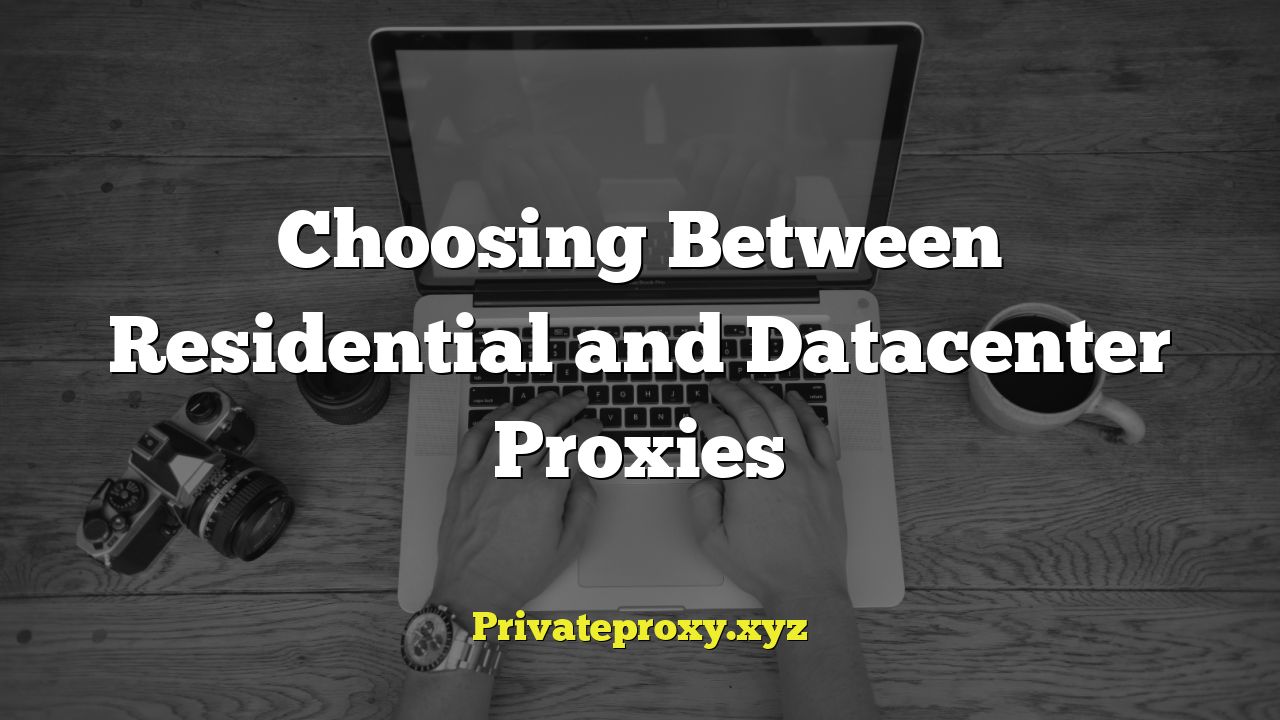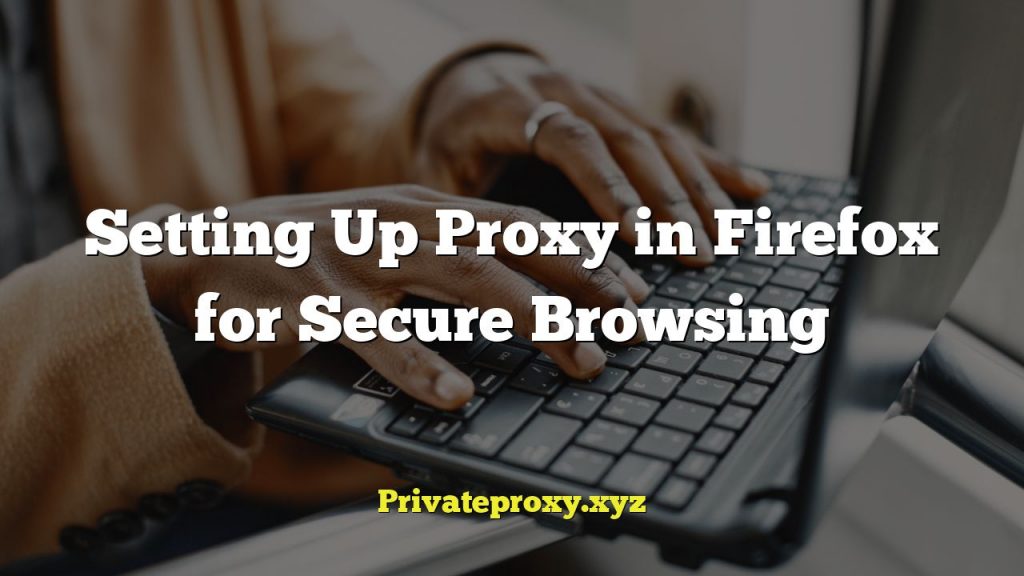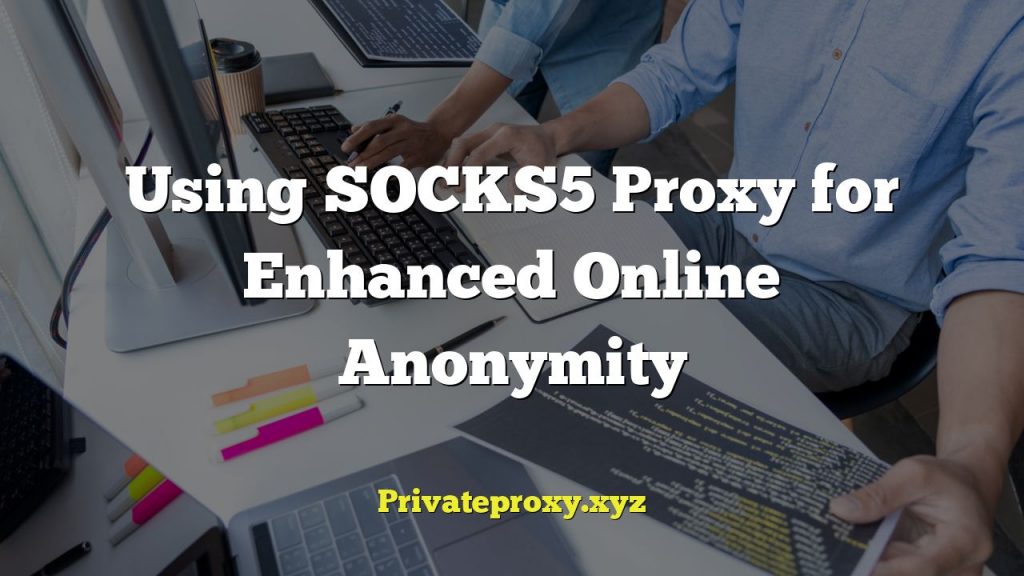
“`html
Residential Proxies: Emulating Real Users
Residential proxies route your internet traffic through real devices, typically home or mobile connections, assigned by an Internet Service Provider (ISP). This makes your requests appear as if they are coming from ordinary users, significantly decreasing the chances of detection and blocking by websites.
How Residential Proxies Work
Residential proxies utilize a peer-to-peer (P2P) network. Instead of your requests going directly to the target website, they are channeled through another user’s device that is part of the proxy network. This device acts as an intermediary, forwarding your request to the website and then relaying the response back to you. Because the IP address belongs to a real residential user, websites are less likely to flag it as suspicious.
Advantages of Residential Proxies
- High Anonymity: The use of real user IPs provides a high degree of anonymity, making it difficult for websites to identify and block your requests.
- Reduced Risk of Blocking: Websites are less likely to block residential IPs, as doing so could inadvertently block legitimate users. This leads to a lower chance of CAPTCHAs and other anti-bot measures.
- Geo-Targeting Capabilities: Residential proxies often allow you to choose the geographical location of the proxy server, allowing you to access content specific to certain regions. This is crucial for tasks like ad verification, market research, and localized SEO.
- Suitable for Complex Tasks: Due to their high anonymity and low blocking rates, residential proxies are well-suited for demanding tasks like web scraping, price monitoring, and social media automation.
Disadvantages of Residential Proxies
- Higher Cost: Residential proxies are generally more expensive than datacenter proxies due to the resources required to maintain a P2P network.
- Slower Speed: Traffic is routed through individual user connections, which may be slower and less reliable than dedicated datacenter connections. Speed can vary significantly depending on the location and internet speed of the proxy user.
- Unpredictable Uptime: The availability of residential proxies depends on the online status of the users within the network. Uptime may be less consistent compared to datacenter proxies, which are hosted in controlled environments.
- Ethical Considerations: Some residential proxy networks may operate without the explicit consent of the device owners, raising ethical concerns about the use of their bandwidth and resources. It’s crucial to choose providers that adhere to ethical standards.
Use Cases for Residential Proxies
- Web Scraping: Extracting data from websites without being blocked.
- Price Monitoring: Tracking prices across different e-commerce platforms.
- Social Media Automation: Managing multiple social media accounts without triggering anti-spam filters.
- Ad Verification: Ensuring that ads are displayed correctly in different geographical locations.
- SEO Monitoring: Tracking keyword rankings in search engine results pages (SERPs).
- Market Research: Gathering data on consumer behavior and market trends.
- Bypassing Geo-Restrictions: Accessing content that is restricted to specific geographical regions.
Datacenter Proxies: Speed and Affordability
Datacenter proxies are hosted in data centers and use IP addresses assigned to those facilities. These proxies offer high speed and are generally more affordable than residential proxies. However, they are also more easily detected as proxies by websites.
How Datacenter Proxies Work
Datacenter proxies are hosted on powerful servers in data centers, which are purpose-built facilities designed to house large numbers of computers and networking equipment. When you use a datacenter proxy, your internet traffic is routed through the proxy server in the data center before reaching the target website.
Advantages of Datacenter Proxies
- High Speed: Datacenter proxies benefit from the high bandwidth and low latency of data center connections, resulting in faster browsing and data transfer speeds.
- Lower Cost: Datacenter proxies are significantly cheaper than residential proxies due to the lower overhead associated with maintaining a data center infrastructure.
- Reliable Uptime: Data centers provide a stable and reliable environment with redundant power and network connections, ensuring high uptime for proxy servers.
- Scalability: Datacenter proxies can easily be scaled up or down to meet changing demands.
Disadvantages of Datacenter Proxies
- Easier Detection: Websites can easily identify datacenter proxies by checking the IP address against databases of known data center IP ranges.
- Higher Risk of Blocking: Due to their easy detection, datacenter proxies are more likely to be blocked by websites that actively employ anti-proxy measures.
- Limited Geo-Targeting: While some datacenter proxy providers offer geo-targeting, the options are often more limited than those available with residential proxies.
- Not Suitable for Complex Tasks: Datacenter proxies are generally not suitable for tasks that require high anonymity or involve bypassing sophisticated anti-bot measures.
Use Cases for Datacenter Proxies
- General Web Browsing: Anonymizing your web browsing activity.
- Content Delivery Networks (CDNs): Testing CDN performance from different geographical locations.
- Basic Data Scraping: Extracting data from websites that do not have strong anti-proxy measures.
- Speed Testing: Measuring internet speeds from different locations.
- Bypassing Basic Geo-Restrictions: Accessing content that is restricted to certain geographical regions, but where the restriction is not strictly enforced.
- Streaming Services (Sometimes): Can be used to bypass geographical restrictions on some streaming services, although residential proxies are often more reliable.
Key Differences: Residential vs. Datacenter Proxies
Understanding the core differences between residential and datacenter proxies is crucial for making the right choice for your specific needs. The primary distinctions lie in anonymity, speed, cost, and suitability for complex tasks.
Anonymity and Detection
* Residential Proxies: Offer high anonymity as they use real user IP addresses, making them difficult to detect as proxies.
* Datacenter Proxies: Are easily detectable as the IP addresses belong to data centers.
Speed and Reliability
* Residential Proxies: Generally slower due to the reliance on individual user connections, with variable uptime.
* Datacenter Proxies: Offer faster speeds and more reliable uptime due to dedicated data center infrastructure.
Cost
* Residential Proxies: More expensive due to the complexity of managing a P2P network.
* Datacenter Proxies: More affordable due to lower overhead costs.
Task Suitability
* Residential Proxies: Ideal for complex tasks like web scraping, social media automation, and ad verification, where anonymity is paramount.
* Datacenter Proxies: Suitable for basic tasks like general web browsing, speed testing, and simple data scraping where anonymity is less critical.
Choosing the Right Proxy Type: A Decision Guide
Selecting the appropriate proxy type depends heavily on your specific requirements and the nature of the task you intend to perform. Consider the following factors when making your decision:
Task Complexity
* Simple Tasks: If you need a proxy for basic tasks like general web browsing or accessing content with minimal geo-restrictions, datacenter proxies are often sufficient and more cost-effective.
* Complex Tasks: For demanding tasks like web scraping, price monitoring, or social media automation, residential proxies are the better choice due to their high anonymity and lower risk of blocking.
Budget
* Limited Budget: If you have a tight budget, datacenter proxies offer a more affordable option. However, be prepared for a higher risk of detection and blocking.
* Flexible Budget: If your budget allows, investing in residential proxies can significantly improve your success rate for complex tasks and reduce the need for frequent proxy rotation.
Speed Requirements
* High-Speed Needs: If you require high-speed connections for tasks like streaming or downloading large files, datacenter proxies are generally faster.
* Less Speed Sensitive: If speed is not a critical factor, residential proxies can still be effective, although you may experience occasional slowdowns.
Geo-Targeting Needs
* Specific Geo-Targeting: If you need to target specific geographical locations, residential proxies offer more granular geo-targeting options compared to datacenter proxies.
* Basic Geo-Targeting: If your geo-targeting needs are less specific, datacenter proxies may be sufficient.
Risk Tolerance
* Low Risk Tolerance: If you cannot afford to be blocked or detected, residential proxies are the safer option.
* Higher Risk Tolerance: If you are willing to accept a higher risk of blocking, datacenter proxies can be a viable option.
Hybrid Solutions: Combining Residential and Datacenter Proxies
In some cases, a hybrid approach that combines both residential and datacenter proxies can be the most effective solution. This strategy allows you to leverage the strengths of each type of proxy while mitigating their weaknesses.
How Hybrid Solutions Work
Hybrid solutions typically involve using datacenter proxies for initial tasks, such as identifying target websites or gathering preliminary data. Once a website is identified as requiring higher anonymity, the system switches to residential proxies for more sensitive operations like data extraction or account creation.
Benefits of Hybrid Solutions
- Cost Optimization: By using datacenter proxies for less demanding tasks, you can reduce your overall proxy costs.
- Improved Performance: Datacenter proxies can handle high-volume requests quickly, while residential proxies provide the necessary anonymity for critical tasks.
- Enhanced Anonymity: By reserving residential proxies for sensitive operations, you can minimize the risk of detection and blocking.
- Adaptive Strategy: A hybrid approach allows you to adapt to changing website conditions and optimize your proxy usage accordingly.
Implementing a Hybrid Solution
Implementing a hybrid proxy solution requires careful planning and configuration. You’ll need to:
* Identify Task Requirements: Determine which tasks require high anonymity and which can be performed with datacenter proxies.
* Configure Proxy Rotation: Set up a system to automatically switch between datacenter and residential proxies based on task requirements.
* Monitor Performance: Track the performance of both types of proxies and adjust your configuration as needed.
* Choose a Suitable Proxy Provider: Select a provider that offers both residential and datacenter proxies with robust management tools.
Best Practices for Using Proxies Effectively
Regardless of whether you choose residential or datacenter proxies, following best practices is essential for maximizing their effectiveness and minimizing the risk of detection.
Proxy Rotation
* Rotate Proxies Frequently: Regularly rotate your proxies to avoid using the same IP address for extended periods, which can trigger anti-proxy measures. The frequency of rotation will depend on the target website and the sensitivity of the task.
User-Agent Rotation
* Rotate User-Agents: Change the user-agent string in your HTTP requests to mimic different web browsers and operating systems. This can help to further disguise your traffic as coming from legitimate users.
Request Throttling
* Throttle Your Requests: Avoid sending requests too quickly, as this can be a sign of automated activity. Implement delays between requests to simulate human behavior.
Cookie Management
* Manage Cookies: Handle cookies carefully to avoid being tracked across multiple websites. Consider clearing cookies regularly or using a dedicated cookie manager.
CAPTCHA Solving
* Implement CAPTCHA Solving: Be prepared to encounter CAPTCHAs and implement a solution for automatically solving them. This can involve using a CAPTCHA solving service or implementing your own CAPTCHA solving algorithm.
Header Spoofing
* Spoof HTTP Headers: Modify HTTP headers to mimic legitimate browser requests. This includes headers such as `Accept-Language`, `Accept-Encoding`, and `Referer`.
Monitor Proxy Performance
* Regularly Test Proxies: Monitor the performance of your proxies and replace any that are slow, unreliable, or blocked. This can be done using automated proxy testing tools.
By adhering to these best practices, you can significantly improve the effectiveness of your proxy usage and reduce the risk of detection and blocking. Remember that no proxy solution is foolproof, and continuous monitoring and adaptation are crucial for success.
“`


